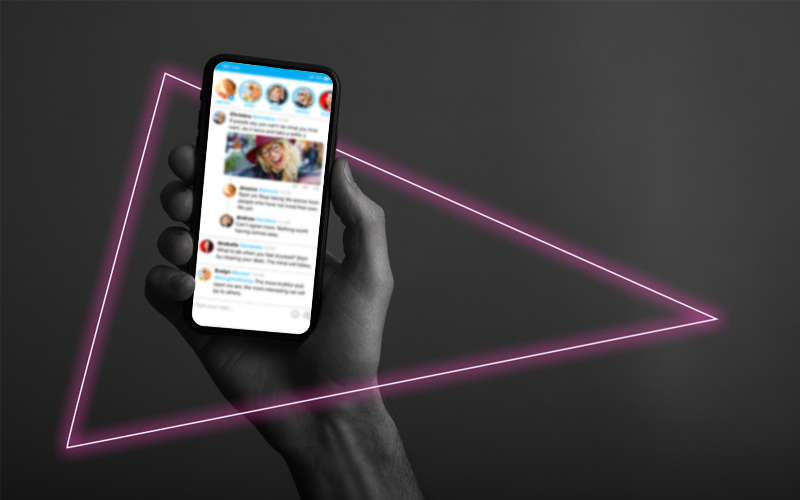Podcast Audio Transcript
Alisha: Hello listeners, this is Alisha; thank you for tuning in to yet another exciting and informative podcast from us at Infosys BPM. Today, we are discussing about how leaders can be effective coaches. And to talk about this, we have here with us, Clifford Mohan Pai, Vice President & Head of Employee Relations. Welcome Clifford. How are you?
Clifford: I’m doing well, Alisha. Thank you for having me on this platform.
Alisha: It’s a pleasure. To start with, having a good corporate leader playing the role of a coach for employees is very interesting. Could you tell us how a leader can be a good coach?
Clifford: Yes, a leader can and should be a good coach. To mention my own example, during my early years in the corporate world, I was intensely focused on defining my career path. It felt like nothing short of a marathon at that time. I went through several milestones of being part of growing teams and eventually leading teams. During that time, I realized the importance of a coach to support my growth journey.
While traditionally leaders were positioned as a command-and-control centre, over time the fundamental notion of leadership has taken a new meaning. It’s now focused on guiding and navigating individuals, adapting to the ever-changing business environment with a sense of ownership and accountability.
Let me share an idea into the key tenets of coaching.
- The focus should be on the end goal. Coaches should be able to support the coachee in defining where you want to reach and what you want to accomplish. Coaches should ensure that the goals formulated by the coachee are both challenging and attainable.
- A goal without a plan is just a dream. So, you need to document what you are planning to accomplish, and the timelines for that. This helps a coachee develop an inherent motivation that results in greater commitment and satisfaction.
- Coaching doesn’t mean telling someone to do something. On the other hand, it is all about collaboratively defining what is to be done. It’s about empowerment and belief.
- A coach should alter and adapt the engagement style to balance the directive and non-directive approaches. This helps the coachee break down goals into attainable milestones.
- A coach will help you achieve your goals effectively and efficiently. Goals should be SMART – specific, measurable, attainable, relevant, and timebound.
- Coaches should bring perfect balance of mind, body, and soul. This is achieved by thinking, speaking, and performing in total harmony.
Alisha: Clifford, it’s enlightening to hear your views in this regard.
Could you touch upon how Infosys BPM is developing a coaching and mentoring culture?
Clifford: Great question, Alisha.
Within Infosys BPM, we have an inherent system for leaders to act as mentors and coaches. An excellent example of that is our Gurucool program, which was launched in 2011. Gurucool is a mentorship program that connects new employees with their ideal coaches within the organization, thereby facilitating their nurturing and grooming for the years to come. I am happy to note that this has also enabled Infoscions to be hyper-productive and has positively influenced retention in the new joinee category phenomenally.
This initiative has also received the Excellence Award in Practice Citation in the Coaching and Mentoring category from ASTD, the American Society of Training and Development.
Alisha: Great to know that this resulted in high achievers across the organization.
We have several roles when it comes to mentorship in an organization, like coaches, counsellors, and trainers. In your opinion what do you think should be the roles of a coach in any organization?
Clifford: Coaches, counsellors, and trainers are not distinct ideas, but different manifestations of the same idea. Let me provide clarity for those three terms you mentioned, based on my own experiences.
During my childhood, it was my father who trained me on various aspects like how to ride a bicycle. That is what you can distinguish as training.
On the other hand, it was my mother who kept asking me – where I was heading, what did I want to do, and what did I want to achieve. This way, she informally took on the role of a coach and helped me identify my goals. My mother also gave me this key advice: “find happiness in what you do” and “do what you do, do well boy”. Today as I look back, I firmly believe that it was one of the best counsels I received for life.
So, a coach is not just a coach; he/she counsels, coaches, and trains you. This is what I call the “CTC role”. The role of a coach isn't to force an individual to completely reinvent himself/herself in a way that goes against their nature, but to challenge them to think differently and shift their perspectives. The coach helps hone your natural talents and abilities to help you meet your objectives.
Alisha: This is so nice to hear you talk about your own experiences that helped you develop this ideology.
Could you provide what key outcomes a leader can expect from playing the role of a coach?
Clifford: Coaching your team is a great way for a leader to realize major productivity gains. Studies also corroborate this.
The International Coach Federation cites a number of studies showing that coaching typically generates an ROI between $4 and $8 for every dollar invested. A report by the International Personnel Management Association noted that coaching combined with training boosts productivity by an average of 88% compared to 22% while training alone.
Personally speaking, even though I am in HR by profession, I believe that I am a coach by passion. I firmly believe in what Simon Sinek says – “when we help ourselves, we find moments of happiness, but when we help others, we find lasting fulfilment”.
Alisha: Yes, that is so true.
Clifford, thank you so much for coming to our podcast today and sharing your thought process with us.
Clifford: Thank you, Alisha. Appreciate your reaching out to me. It was a great experience.
Alisha: Dear listeners, if you enjoyed our podcast today, please don’t forget to share and like it on social media. Our social handles are mentioned in the podcast page. The podcast will be available on various platforms like Google Podcasts and Spotify, in addition to our website.
Also, if you have any queries, do reach out to us through the email address on the podcast description. Watch this space for more exciting podcasts coming up. Once again, thank you for tuning in, stay healthy and socially distanced. Have a nice day!






